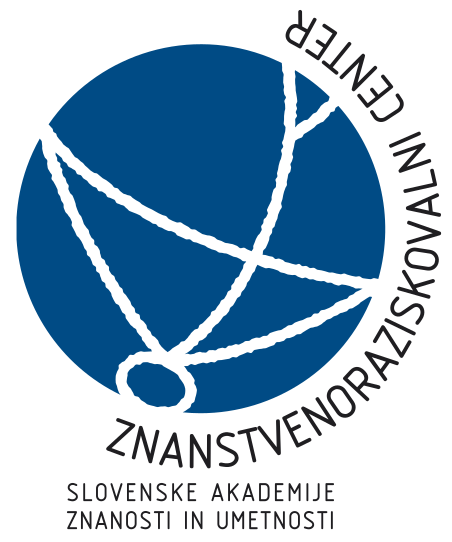Difference between revisions of "Sociomedical Institute"
Dare Pejić (talk | contribs) |
Dare Pejić (talk | contribs) |
||
| Line 27: | Line 27: | ||
}} | }} | ||
| − | == | + | == Past Reasearch Studies == |
Since its inception the Institute researched many sociomedical issues in Slovenia. In 1994 academics the members of the Institute prepared a study which identified fertility behaviour (especially reproductive health). One of the priority research areas of the Institute is suicide and suicidal behaviour. Several changes in the personnel structure of the Sociomedical Institute have taken place since 1999, and at the same time the Institute’s research orientation has expanded to cover the fields of sociology, social anthropology, psychology, neurobiology and social work. Research at the Sociomedical Institute is characterised by a multidisciplinary approach. | Since its inception the Institute researched many sociomedical issues in Slovenia. In 1994 academics the members of the Institute prepared a study which identified fertility behaviour (especially reproductive health). One of the priority research areas of the Institute is suicide and suicidal behaviour. Several changes in the personnel structure of the Sociomedical Institute have taken place since 1999, and at the same time the Institute’s research orientation has expanded to cover the fields of sociology, social anthropology, psychology, neurobiology and social work. Research at the Sociomedical Institute is characterised by a multidisciplinary approach. | ||
| Line 45: | Line 45: | ||
== See also == | == See also == | ||
*[[Institute for the History of Medicine, University of Ljubljana]] | *[[Institute for the History of Medicine, University of Ljubljana]] | ||
| + | *[[Museum of Medicine, Institute for the History of Medicine]] | ||
*[[Slovene Academy of Sciences and Arts (SAZU)]] | *[[Slovene Academy of Sciences and Arts (SAZU)]] | ||
| + | *[[Scientific Research Centre (ZRC SAZU), Slovene Academy of Science and Arts]] | ||
| + | *[[Slovene Academy of Sciences and Arts (SAZU) Library]] | ||
== External links == | == External links == | ||
*[http://dmi.zrc-sazu.si Sociomedical Institute website] (in English) | *[http://dmi.zrc-sazu.si Sociomedical Institute website] (in English) | ||
*[http://dmi.zrc-sazu.si/eknjiga/Rajgelj.pdf The study ''Between Self-fulfilment and Social Expectations: The Attitude of the University Educated towards Fertility'' by Urška Rajgelj, available as a pdf. file] (Summary in English) | *[http://dmi.zrc-sazu.si/eknjiga/Rajgelj.pdf The study ''Between Self-fulfilment and Social Expectations: The Attitude of the University Educated towards Fertility'' by Urška Rajgelj, available as a pdf. file] (Summary in English) | ||
Revision as of 16:45, 15 January 2011
Past Reasearch Studies
Since its inception the Institute researched many sociomedical issues in Slovenia. In 1994 academics the members of the Institute prepared a study which identified fertility behaviour (especially reproductive health). One of the priority research areas of the Institute is suicide and suicidal behaviour. Several changes in the personnel structure of the Sociomedical Institute have taken place since 1999, and at the same time the Institute’s research orientation has expanded to cover the fields of sociology, social anthropology, psychology, neurobiology and social work. Research at the Sociomedical Institute is characterised by a multidisciplinary approach.
Social Phenomena Studies
The study of social phenomena such as low fertility rate, ageing of the population, migration, auto-and hetero-aggressive behavioural patterns and substance abuse, is thus set in the context of a wide spectrum of research areas covering the fields of social sciences, humanities and medical sciences. On the one hand, these research areas link into the sociological and social-anthropological interpretation of classical demographic models and concepts of social-anthropological theory of ethnicity and nationalism, while on the other they link into the personality, psychosocial, neuropsychological and neurobiological theories of social behaviour.
In 2008 the Institute published a study conducted by Urška Rajgelj: Between Self-fulfilment and Social Expectations: The Attitude of the University Educated towards Fertility.
International Cooperation
The Institute finished several projects in colaboration with international research institutions. The latest research FEMAGE - Needs for Female Immigrants and their Integration in Ageing Societies was funded by the European Commission and contucted with European and regional partners.
See also
- Institute for the History of Medicine, University of Ljubljana
- Museum of Medicine, Institute for the History of Medicine
- Slovene Academy of Sciences and Arts (SAZU)
- Scientific Research Centre (ZRC SAZU), Slovene Academy of Science and Arts
- Slovene Academy of Sciences and Arts (SAZU) Library



